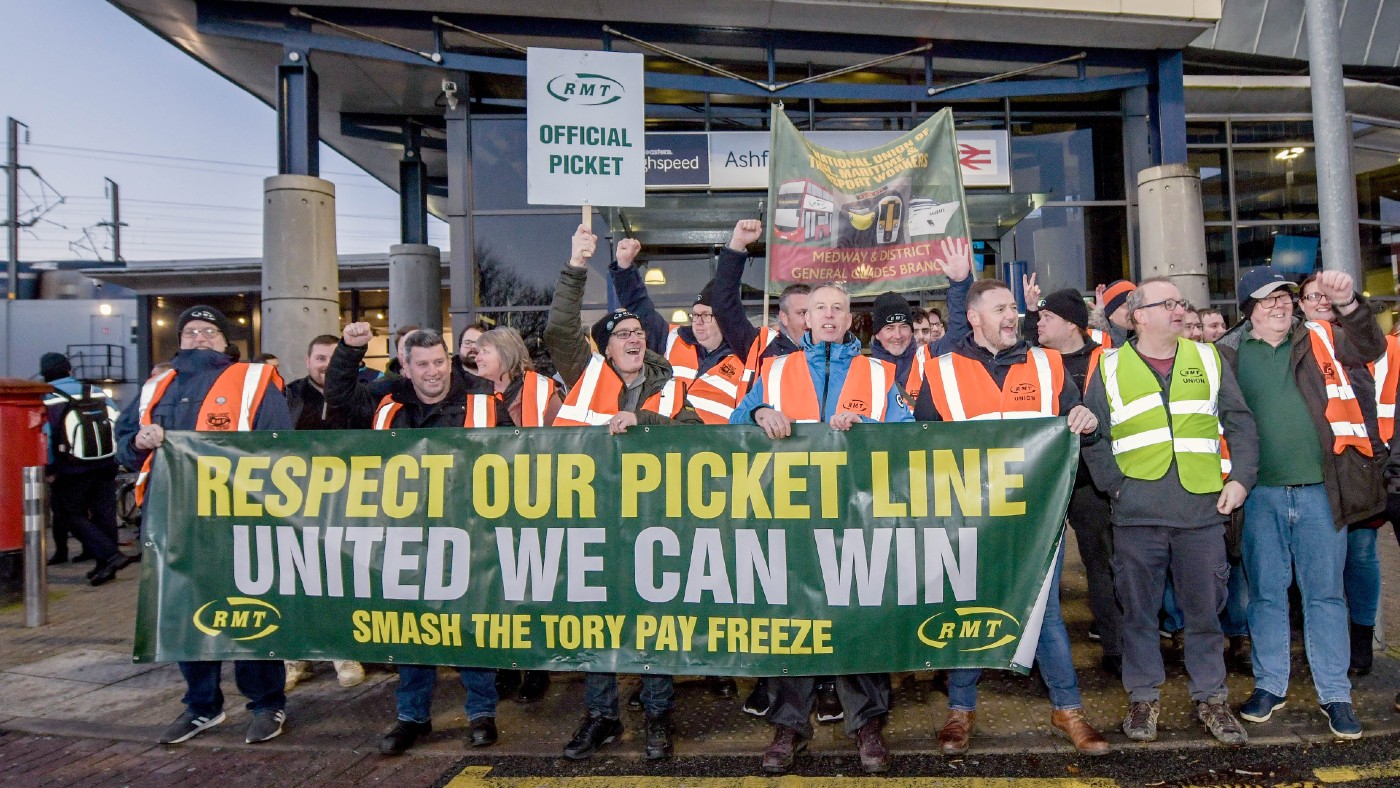One in four people ‘trapped’ in low-paid jobs
Study shows just one in six poorly paid workers permanently ‘escape’

A free daily email with the biggest news stories of the day – and the best features from TheWeek.com
You are now subscribed
Your newsletter sign-up was successful
The UK’s “low-pay culture” leaves as many as one in every four workers “permanently” stuck on a low salary, from which they have “little chance of escape”, a new report warns.
The study, conducted by the Social Mobility Commission, an advisory non-departmental public body, also revealed that almost half (48%) of the country’s workforce fluctuated in and out of low-paying jobs over the past decade.
The report - titled “The great escape” - also showed that just one in six low-salary workers managed to permanently move to better-paid jobs during that frame.
The Week
Escape your echo chamber. Get the facts behind the news, plus analysis from multiple perspectives.

Sign up for The Week's Free Newsletters
From our morning news briefing to a weekly Good News Newsletter, get the best of The Week delivered directly to your inbox.
From our morning news briefing to a weekly Good News Newsletter, get the best of The Week delivered directly to your inbox.
People in low-paying jobs have seen their hourly wages rise by just 40p in real terms, on average, over the past ten years, compared with a £4.83 pay rise for those who have permanently “escaped”.
Older people were least likely to be able to escape low-paying jobs. Different geographic areas also showed differing results, with Scottish workers most likely to escape, and those in the Northeast of England least likely.
Former Labour health secretary Alan Milburn, who chairs the commission, said: “Britain has an endemic low pay problem. While record numbers of people are in employment, too many jobs are low skill and low paid.”
Young women juggling work with childcare responsibilities are especially likely to end up in poorly paid jobs, he added. “Millions of workers - particularly women - are being trapped in low pay with little chance of escape,” Milburn said. “The consequences for social mobility are dire.
A free daily email with the biggest news stories of the day – and the best features from TheWeek.com
“Britain’s flexible workforce gives us global economic advantage, but a two-tier labour market is now exacting too high a social price. A new approach is needed to break the vicious cycle where low skills lead to low pay in low-quality jobs. Welfare policy should focus on moving people from low pay to living pay.”
Theresa May’s government has defended itself against the claim that inequality has widened in the last decade by referring to the Gini coefficient; an internationally recognised measure of income inequality that has remained fairly constant in the UK in recent years.
But, as The Guardian points out, the Gini coefficient also includes pensioners and people on benefits, while the commission’s research focuses on those in active employment.
-
 Gisèle Pelicot’s ‘extraordinarily courageous’ memoir is a ‘compelling’ read
Gisèle Pelicot’s ‘extraordinarily courageous’ memoir is a ‘compelling’ readIn the Spotlight A Hymn to Life is a ‘riveting’ account of Pelicot’s ordeal and a ‘rousing feminist manifesto’
-
 The EU’s war on fast fashion
The EU’s war on fast fashionIn the Spotlight Bloc launches investigation into Shein over sale of weapons and ‘childlike’ sex dolls, alongside efforts to tax e-commerce giants and combat textile waste
-
 How to Get to Heaven from Belfast: a ‘highly entertaining ride’
How to Get to Heaven from Belfast: a ‘highly entertaining ride’The Week Recommends Mystery-comedy from the creator of Derry Girls should be ‘your new binge-watch’
-
 Why au pairs might become a thing of the past
Why au pairs might become a thing of the pastUnder The Radar Brexit and wage ruling are threatening the 'mutually beneficial arrangement'
-
 Fastest UK wage rise in 20 years fails to match inflation
Fastest UK wage rise in 20 years fails to match inflationSpeed Read Widening gap between private and public sector wages is also stoking anger among striking workers
-
 The pros and cons of a four-day working week
The pros and cons of a four-day working weekPros and Cons Think-tank says shift in working patterns could help alleviate the cost-of-living crisis
-
 Why real wages have suffered ‘their sharpest fall on record’
Why real wages have suffered ‘their sharpest fall on record’Business Briefing Even pay rises aren’t preventing workers from feeling worse off – and that’s a big problem
-
 Labour shortages: the ‘most urgent problem’ facing the UK economy right now
Labour shortages: the ‘most urgent problem’ facing the UK economy right nowSpeed Read Britain is currently in the grip of an ‘employment crisis’
-
 Will the energy war hurt Europe more than Russia?
Will the energy war hurt Europe more than Russia?Speed Read European Commission proposes a total ban on Russian oil
-
 Will Elon Musk manage to take over Twitter?
Will Elon Musk manage to take over Twitter?Speed Read The world’s richest man has launched a hostile takeover bid worth $43bn
-
 Shoppers urged not to buy into dodgy Black Friday deals
Shoppers urged not to buy into dodgy Black Friday dealsSpeed Read Consumer watchdog says better prices can be had on most of the so-called bargain offers